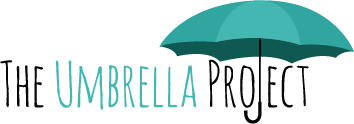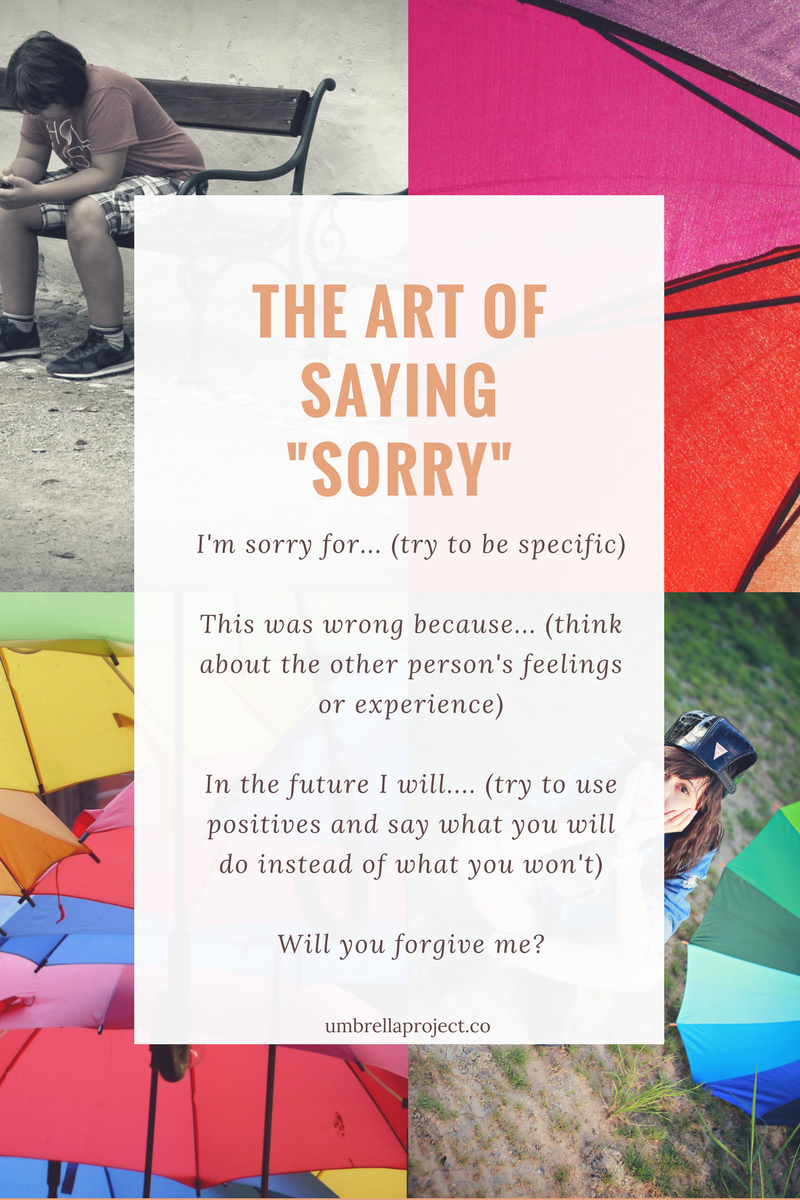
by Jen Forristal | Mar 16, 2018 | Kindness
Do you ever feel like you’re just going through the motions when getting your kids to say they’re sorry? Kids are notorious for half-hearted apologies, especially to their siblings, so use those opportunities to teach your children the art of a better “sorry”. Apologies, when given from the heart, can be a great act of kindness. It feels good when someone takes ownership for their actions and acknowledges the impact their actions have had on you.
Have your child complete these 4 statements when they are apologizing:
- I’m sorry for… (be as specific as possible)
- This was wrong because… (think about the other person’s feelings and the impact you have had on them)
- In the future I will… (try to keep this positive and state what you will do instead of what you won’t)
- Will you forgive me?
Forgiveness is a powerful way to help both people move on. If forgiveness isn’t in the cards yet, statements like “Thank you for apologizing, but I just need a bit more time” can help acknowledge the apologizer and give the other person a little more time to process their feelings.
Print out this reminder and put it somewhere visible to help your children when they are apologizing. You will end up with a sorry that means something to both the giver and the receiver.
Parenting is a busy job and these added steps do take up time. After using this for a few months in our household, we switched to the long and short versions of sorry. We now save the long version for ‘sorrys’ that don’t feel sincere and need a little more attention. If the kids make their sincerity felt with a shorter apology, we don’t need to move on to the longer version.
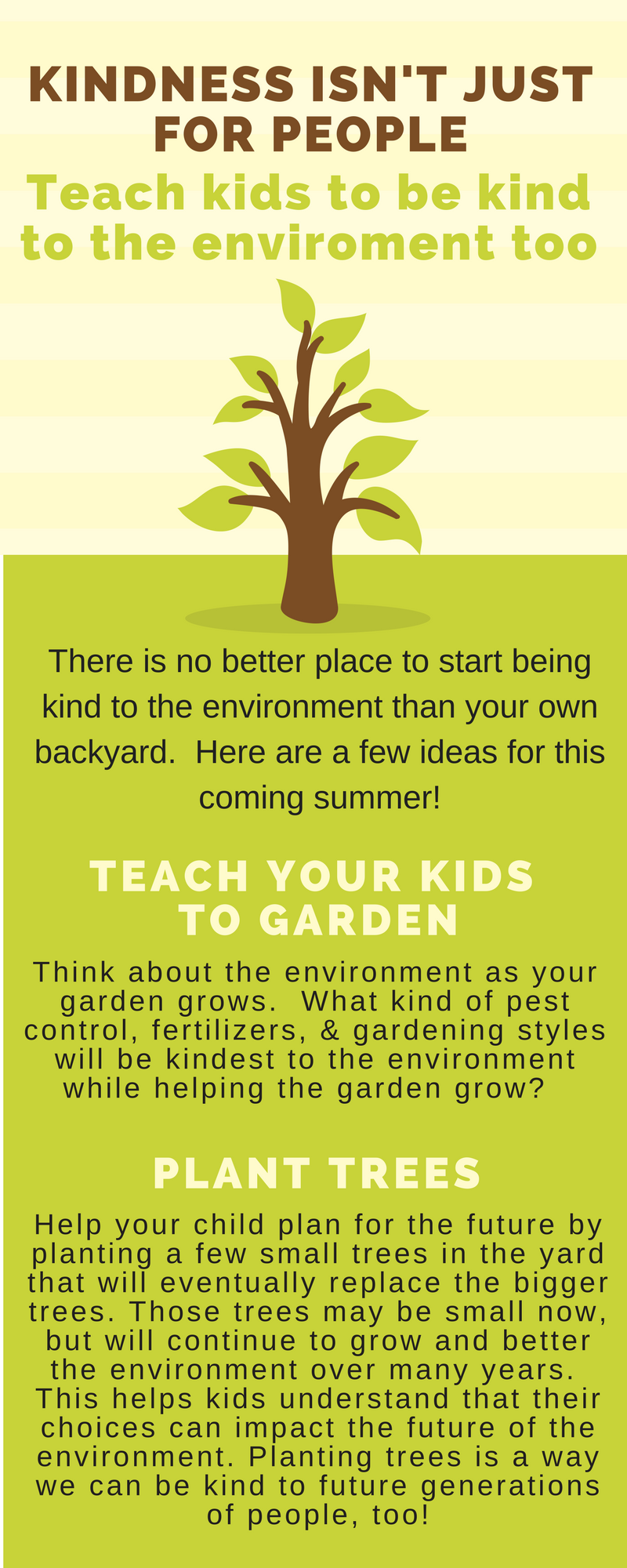
by Jen Forristal | Mar 12, 2018 | Kindness
There is no better place to start being kind to the environment than your own backyard. Here are a few ideas for this coming summer!
Teach your kids to garden
Think about the environment as your garden grows. What kind of pest control, fertilizers, & gardening styles will be kindest to the environment while helping the garden grow?
Plant trees
Help your child plan for the future by planting a few small trees in the yard that will eventually replace the bigger trees. Those trees may be small now, but will continue to grow and better the environment over many years. This helps kids understand that their choices can impact the future of the environment. Planting trees is a way we can be kind to future generations of people, too!
Download a copy of the infographic above in PDF format by clicking here.
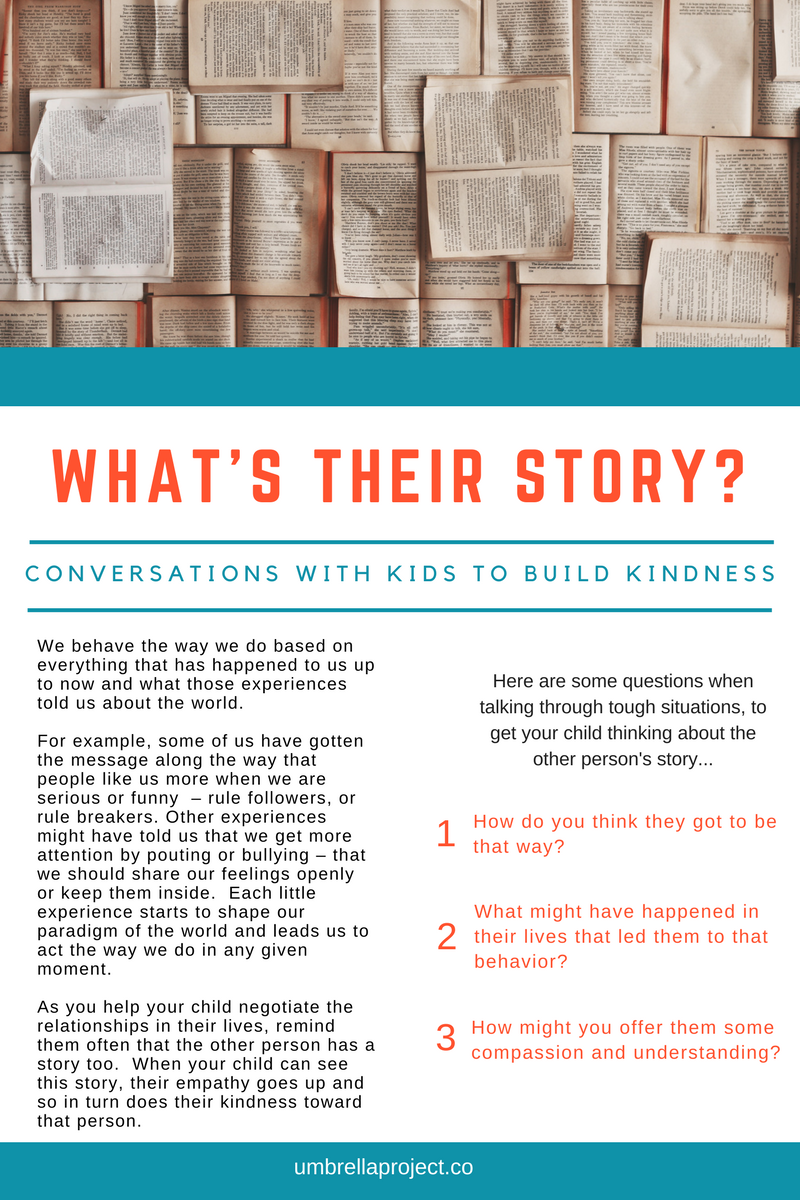
by Jen Forristal | Mar 10, 2018 | Kindness
We behave the way we do based on everything that has happened to us up to now and what those experiences told us about the world.
For example, some of us have gotten the message along the way that people like us more when we are serious or funny – rule followers, or rule breakers. Other experiences might have told us that we get more attention by pouting or bullying – that we should share our feelings openly or keep them inside. Each little experience starts to shape our paradigm of the world and leads us to act the way we do in any given moment.
As you help your child negotiate the relationships in their lives, remind them often that the other person has a story too. When your child can see this story, their empathy goes up and so in turn does their kindness toward that person.
Download a copy of the PDF infographic above by clicking here, and don’t forget to visit our Facebook Page for our monthly video tips!

by Jen Forristal | Mar 7, 2018 | Kindness
Thoughtful gifts are one way we can use kindness. This recent research on how we spend money may change the way you think about giving! Click here to read the article.
Want to boost your happiness and the happiness of the people close to you? Buy yourself and others time for better wellbeing! ?
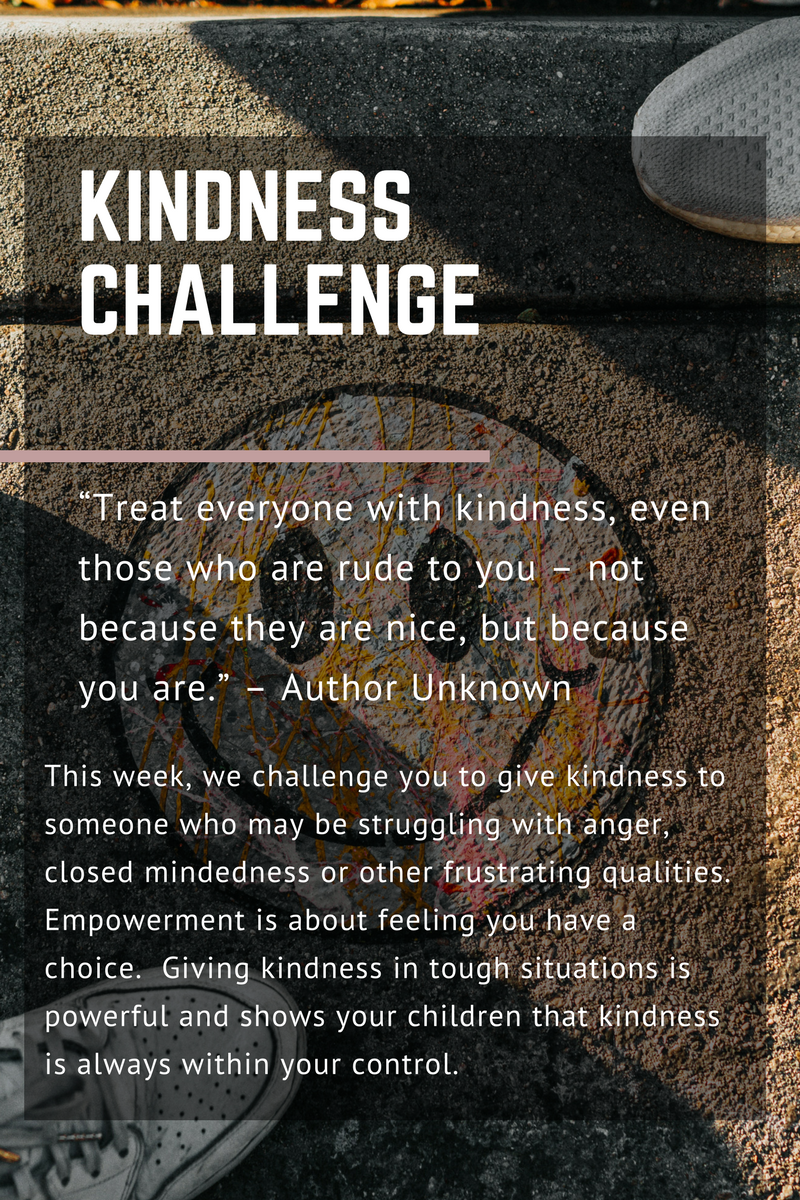
by Jen Forristal | Mar 5, 2018 | Kindness
“Treat everyone with kindness, even those who are rude to you – not because they are nice, but because you are” – Author Unknown
This week, we challenge you to give kindness to someone who may be struggling with anger, close mindedness or other frustrating qualities. Empowerment is about feeling you have a choice. Giving kindness in tough situations is powerful and shows your children that kindness is always within your control.
Download a PDF copy of the infographic by clicking here.
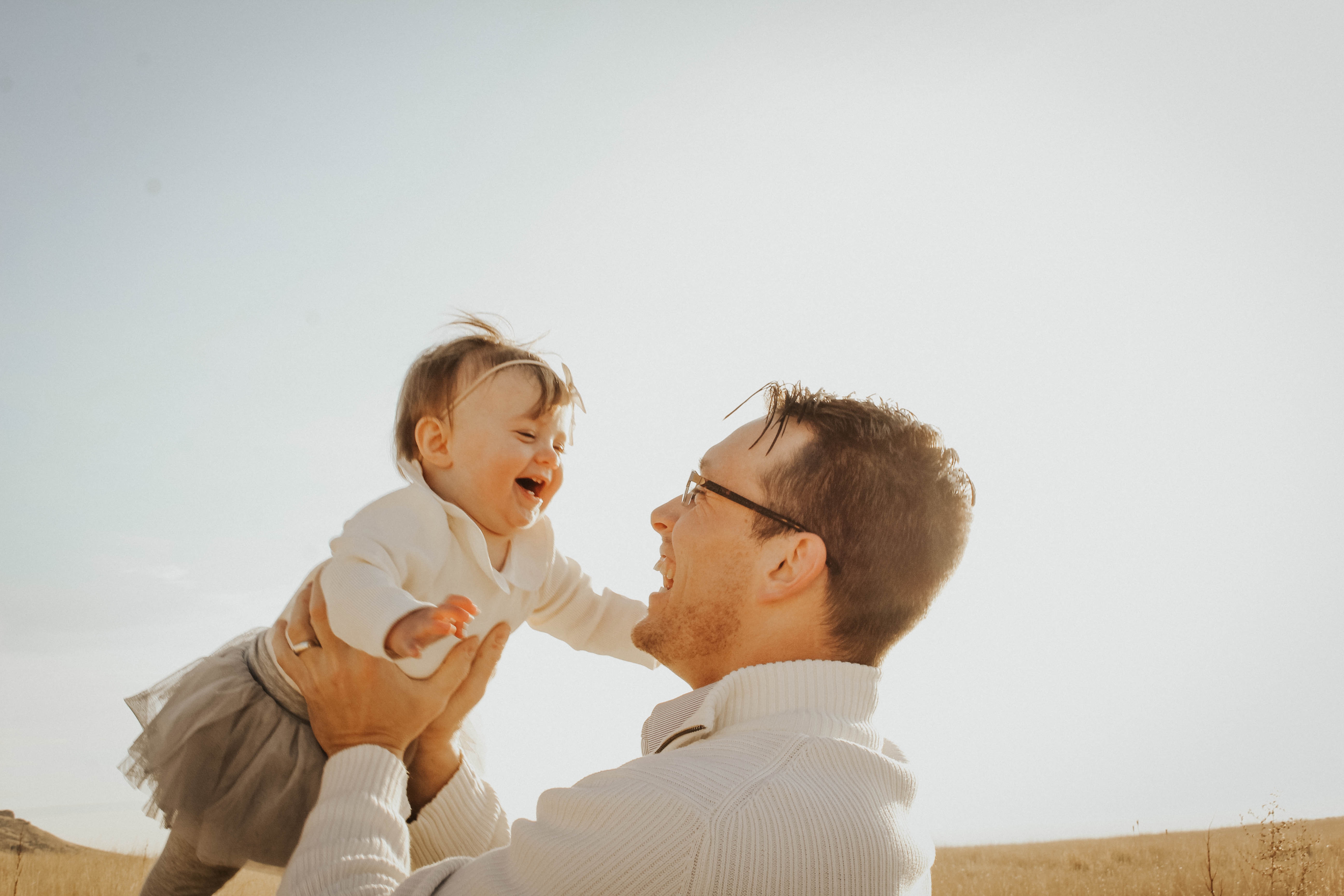
by Jen Forristal | Mar 2, 2018 | Kindness
It’s March!! Spring is around the corner so this month, let’s have some fun and spread a little sunshine!! At the Umbrella Project we believe that every day can be a random acts of kindness day. Kindness is one of the easier skills to understand and make a part of our daily lives. Even a genuine smile counts!
How does kindness help us?
Doing good is not only beneficial for the person on the receiving end and those who witness the kind action, but also for the givers of kindness. When we are kind and intentionally perform acts of kindness, we get a boost in our own wellbeing and happiness. It feels good to help others and it helps us focus on the positive things in our lives. It’s win-win!
This month, we are going to add some complexity to kindness for our children. We will help to increase their care for others, but also help them recognize the benefits they get from being kind and then actively looking for chances to use this skill more often.

